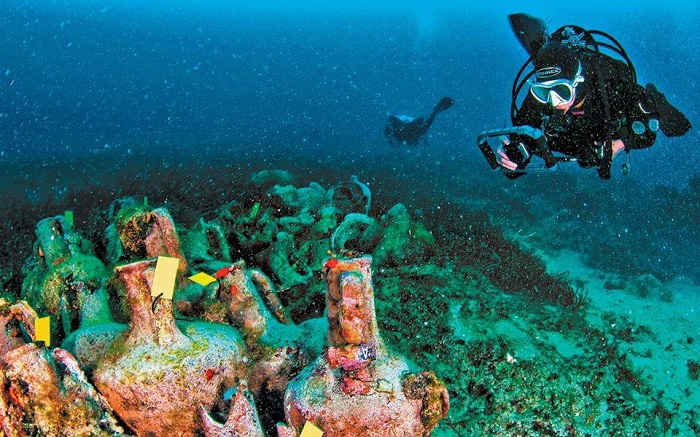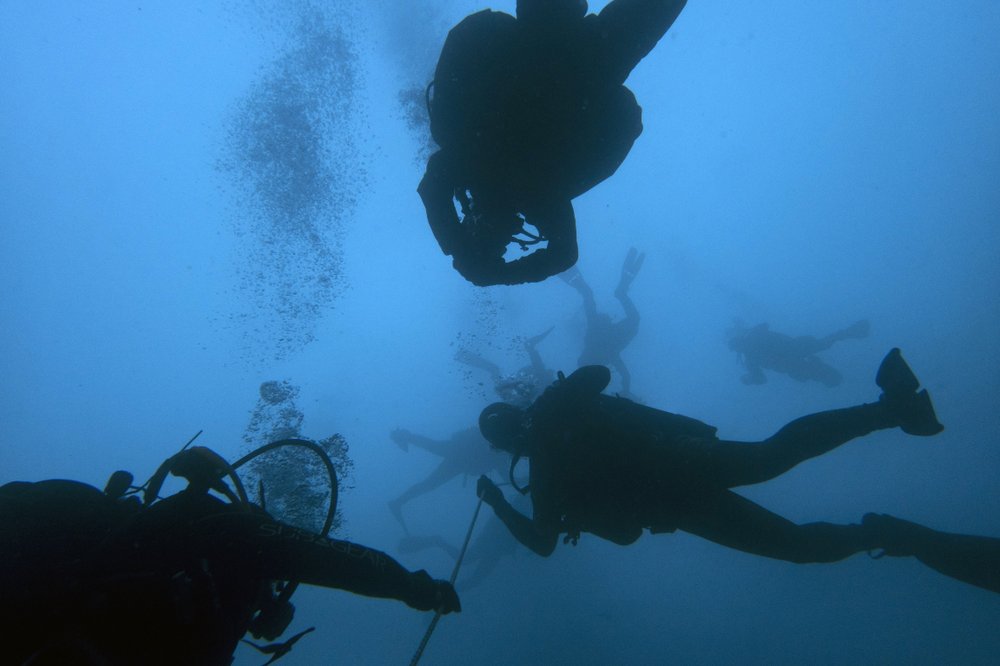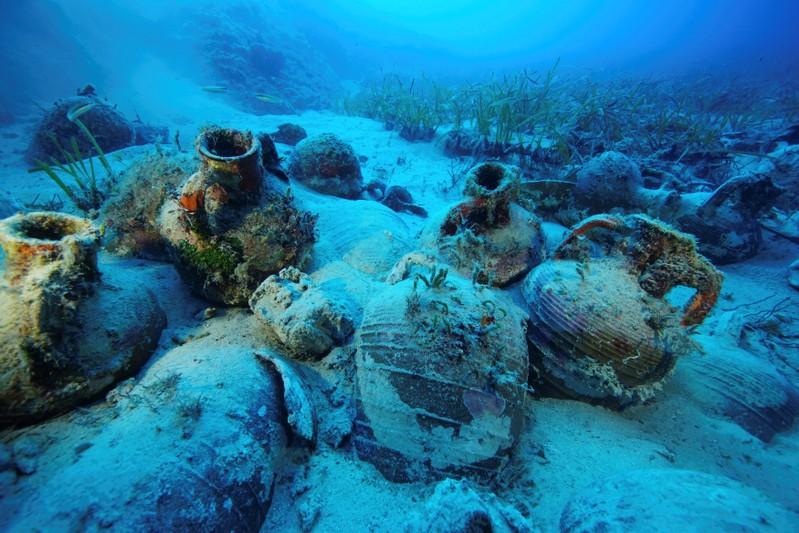Greece is going all out to attract visitors this summer.
Once-stringent scuba diving regulations for Greek waters were recently lifted, eliminating diving depth limits and allowing diving at archaeological sites and sunken ships in the seas around Greece.
This latest loosening of restrictions follows the passing of a 2019 bill in Parliament easing scuba diving laws, and is part of larger group of incentives to encourage the return of international tourists to Greece following the worldwide coronavirus lockdown.

An archaeologist dives next to ancient amphoras from a 5th Century B.C. shipwreck in Greece. Source: AP News. 
Scuba divers can now make unescorted visits to shipwrecks that are older than 50 years. Source: AP News.
Prior to the passage of the bill, scuba divers could only enter archaeological sites when accompanied by qualified underwater divers, who are typically hard to come by.
Now, scuba divers are understandably expected to flock to Greece’s many sunken ships, as the 2019 bill allows for unescorted visits to shipwrecks that are older than 50 years.
In 2019, the Ephorate of Underwater Antiquities, a department of Greece’s Ministry of Culture, along with the Ministry of Tourism, designated four ancient shipwrecks to become Greece’s first underwater museums in a bid to expand underwater-heritage marketing.
The first two Underwater Archaeological Parks in the nation are scheduled to open to visitors by this summer. The two parks are located on the islet of Sapientza, opposite Methoni town and in Navarino Bay in the Pylos area of southwestern Messinia.

